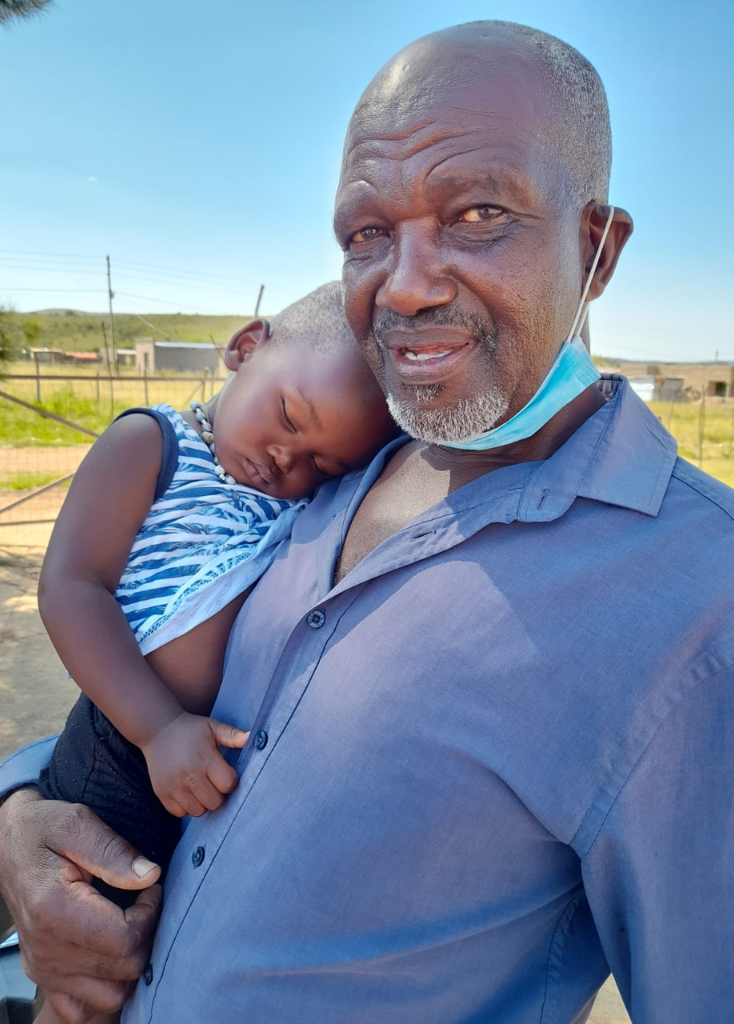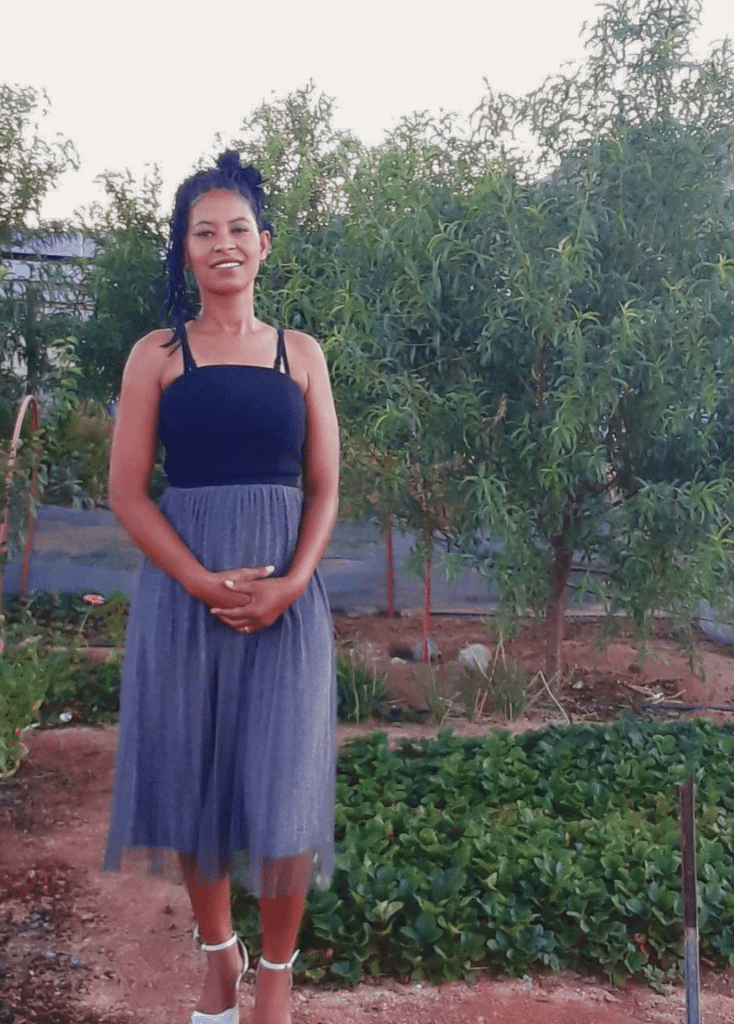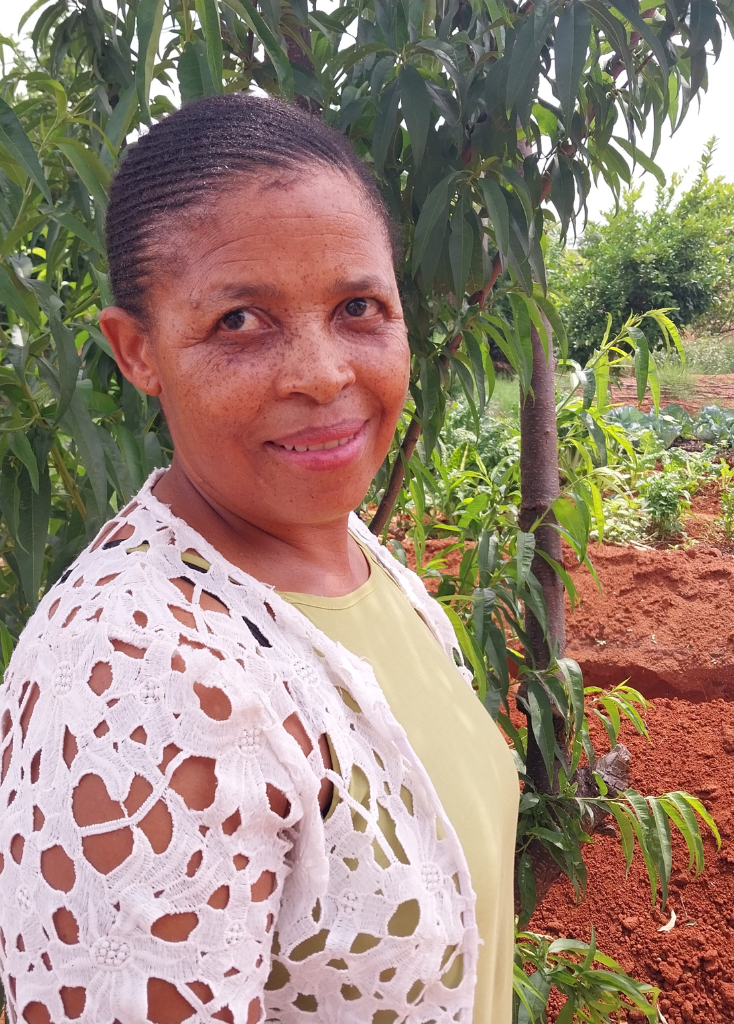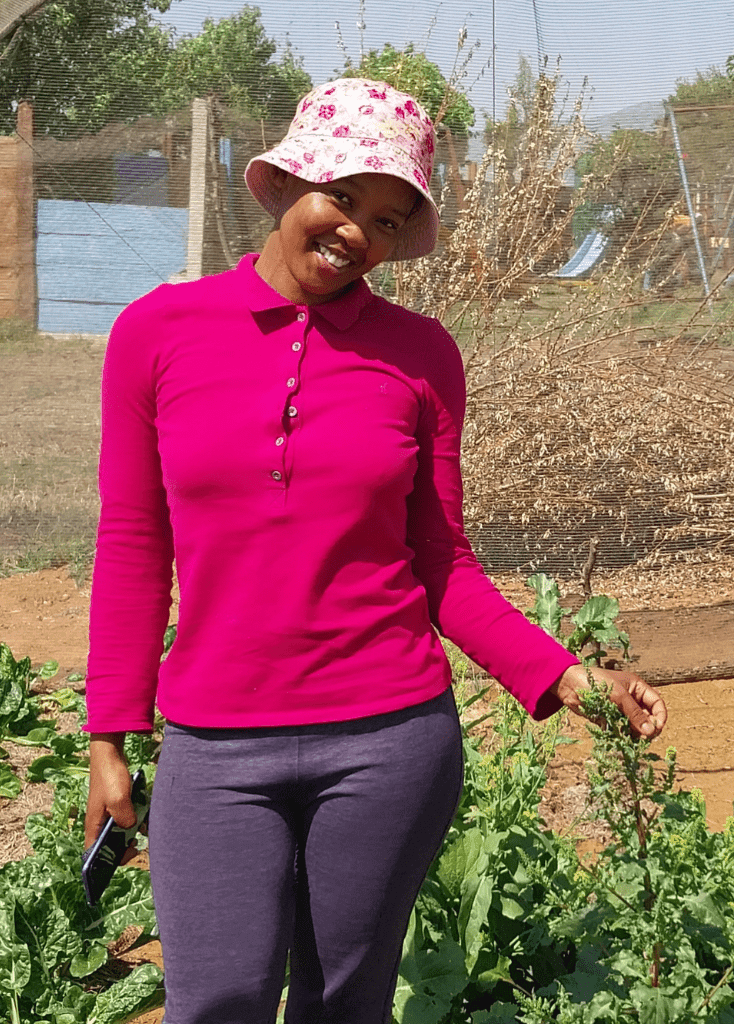
BBL PARTICIPANT: Mooketsi (Max) Nkwana, Soweto, Gauteng Province
In a Nutshell
Through his participation in SocioTech’s Broad-Based Livelihoods (BBL) strategies to stimulate personal economic activity, Mooketsi (Max) Nkwana from Soweto has learnt the skills to become a successful urban farmer.
His excellent record-keeping skills convinced the judges to award him a tender to manage an aquaponics business with his partners. He continues to train many others and donates seedlings to local schools.
He says…
I grew up in Meadowlands, Soweto with my grandparents - both of whom were avid gardeners. When you are a kid, you watch and (most of the time) you do what you’re told, and the knowledge is absorbed in that way. You learn by doing and you don’t realize it’s happening. It’s like learning to walk. Once you know how to do it, it is always there with you, and you take it for granted. You don’t think about it because it is just part of who you are.
My grandparents used to have a little food garden. They had that classic maize and pumpkin and bean Three Sisters interplanting arrangement. My grandfather also worked as a gardener in the suburbs, so he would bring home cuttings of all those fancy flowers and plant them. Our garden was always so bright and beautiful.
In addition to that Soweto gardening, I also used to spend school holidays with relatives in the North West. My family are originally from a little settlement between Hebron and Letlhabile called Kgabalatsane. It was there that I learnt those old-time skills like seed saving (mielies and even watermelons).
As an adult, I didn’t start off working in farming – I worked for SAA and COMAIR as part of the cabin crew for a long time, but I got frustrated by the lack of opportunities for professional growth. When I stopped flying, I coached kids’ soccer. Because I was at the schools coaching, I became aware of opportunities to farm on land set aside for school vegetable gardens. I hadn’t worked with plants and soil for years but, like I say, all that knowledge comes back.
It was while I was running the food garden at Tsietsi Masinini Primary School that I met the people from SocioTech and Umsizi. Through them I did the MyFood and MyFuture training. Later I did the MyBusiness training too. I started going to farmers’ meetings in the township and over time I met like-minded people. I knew I wanted to work collectively, so I went about choosing farming partners much as I did when I picked a soccer team as a coach. You look for talent but also commitment and stamina.

Together we registered as a cooperative in 2018. Working within a cooperative is not always easy but we are careful and respectful with our interpersonal relationships, and we talk through and resolve any difficulties that come up along the way. Group dynamics can be hard. Lots of coops die, but ours has survived because we are a good team with a nice mix of skills, personalities, and ages. There are 6 of us. 5 men, 1 woman. I think one of our strengths is our mix of old and young people. The youngest member of the cooperative was born 1990 and oldest 1955. The funny thing is that our 1955 member is the person who works the hardest out of all of us! So, we went as a team to the Kwa Phalo Primary and asked for a lease to farm on their land. We ran the Kwa Phalo garden as a business and an education project. We sold vegetables, but we also taught the kids how to plant, and donated food to the school. We won all sorts of trophies through organizations like EduPlant. In 2019 we won the Food and Trees for Africa Gauteng’s Best School Garden competition, which is sponsored by Tiger Brands.
We did the SocioTech MyBusiness training as a group and it has been such a solid foundation for us. It gave us the base in bookkeeping and data collection that we needed to be ready and able to take on our next challenge. That challenge was aquaponics. We heard about an opportunity sponsored by Mondelēz International Foundation whereby they wanted to train Soweto farmers to run an aquaponics system. Our cooperative saw it as an opportunity to expand our business and our skills set, so we applied. A lot of other people also applied but because we had the SocioTech templates and had been keeping such meticulous records we could show the funders that we had the skills and the knowhow to do the job. When the people from Mondelez came to interview us and said: “Can we see your records?” a lot of other people had a problem, but our records were all there. Because we were using those SocioTech templates they could see exactly where we were at with our business. We were the successful applicants.

"Our Cooperative has several income streams."
In an aquaponics system, water from fish tanks is fed into plant grow beds and the fish waste is converted into nutrient-rich food that the plants absorb. The plants then provide a natural filter to purify the water, and this brings clean water back into the fish tanks. As a result, aquaponics uses about 90% less water than traditional farming methods and is much better for the environment.
We run our system completely off the grid using solar power to generate energy. Which is great but not without challenges. This is not always an easy community to work in. There is lots of crime – our first solar panels got stolen. After that we upped our security and told the funders that we would replace the panels ourselves because we didn’t want charity. I was so angry with those thieves. I know that people are poor and, if they were stealing cabbages I would understand, but it is never cabbages people steal…
It has been quite a steep learning curve. None of our group had worked with fish before. We had problems with the tilapia fish that we initially put into the tanks. Now we have catfish and it is all going much better. We have the 2 tunnels – (one for fish, one for plants). There are 10 growing beds and 5 tanks. Each tank supplies 2 growing beds. Each of these tanks has 4000 litres of water and there are 400 fish per tank. So, that is a big responsibility.
The plant tunnel currently has tomato, lettuce and brinjals. There are also the wild plants around the edge of the property. You see this thepe that grows all around the fences? Old people in the community come and collect it to eat as morogo but once it flowers the leaves are too bitter for human consumption. When that happens, we also use it to create liquid manure (it’s full of nutrients) and it works well as part of a brew with garlic and chili and sunlight soap to keep insects away. You let the plant tea sit for about 48 hours and then sieve it, dilute it and spray the mix on the plants.
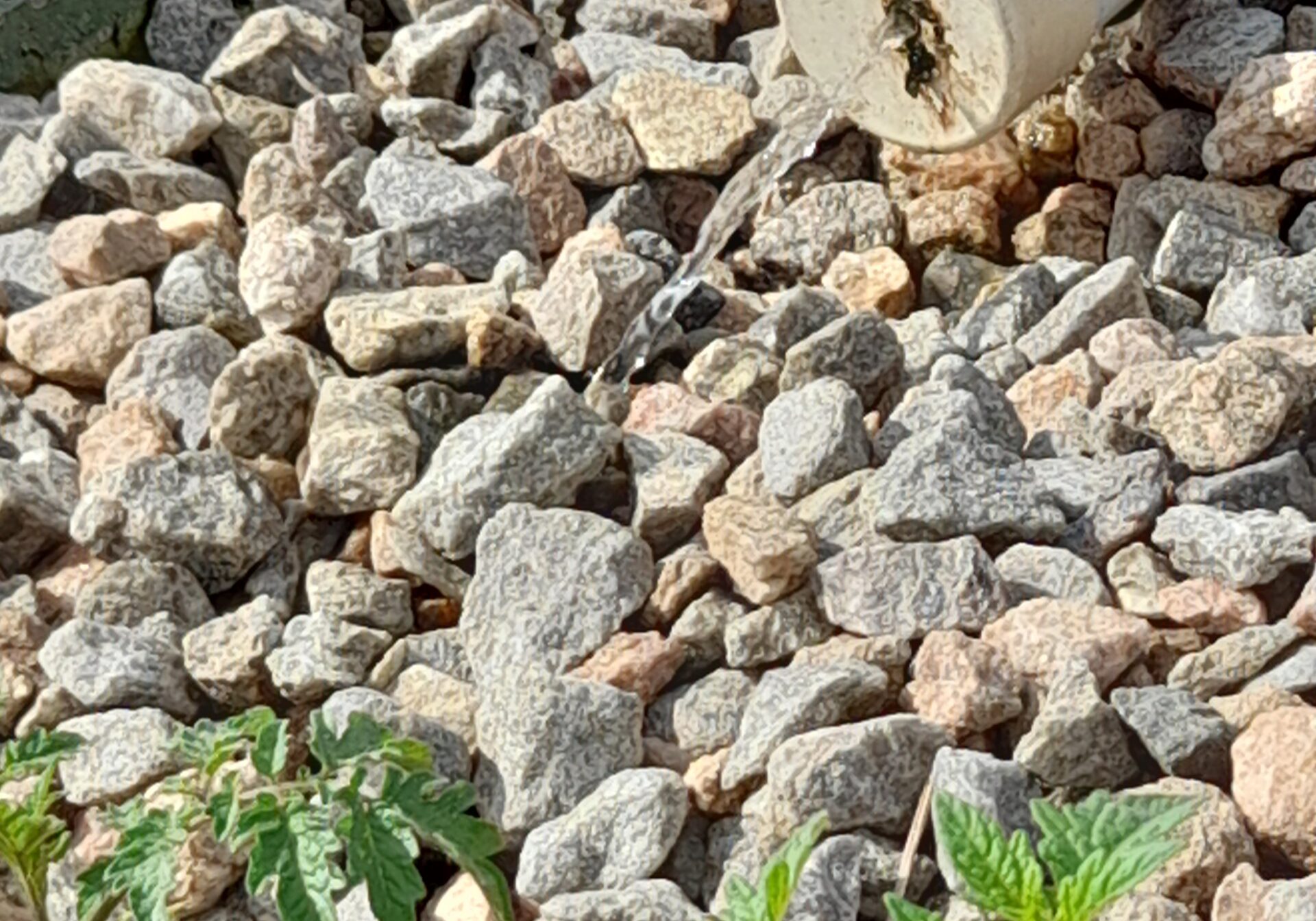
Our cooperative has several income streams. We are selling vegetables to locals in the community for domestic use. The elderly support us most, because they know about good, healthy eating. Unlike young people who eat a lot of junk food, our elders still know the right ways. We also sell vegetables to hawkers. We have started to sell seedlings too. People were always asking us to sell them seedlings, so we saw it was a gap in the market and it has turned into quite good business.
So far, we haven’t managed to get regular contracts with restaurants, but that is where we would like to be heading, business wise. As I see it, we could plant specifically for them whatever they wanted. So, for instance, if a chef told us he wants heritage plants, we could do that. We are also trying to design and develop a small aquaponic system that we could sell to other people. At the moment we have made a prototype and it works well, but we are still costing it out. It is made using repurposed drums from a cattle feedlot and a few pipes that we bought from Cashbuild. It sounds strange, but it works.

One of our key challenges is learning how to make the catfish fish market profitable. A lot of older South Africans are very suspicious of all fish. And even young South Africans (who know about going to restaurants and having the seafood platter) are unfamiliar with eating catfish. We need to find ways to connect with the people who love catfish. West and Central African communities have a history of eating catfish, so they are the market we plan to target. It is all about making the right connections.
I love teaching and I see it as an important part of what we do. Across the road from us there is the Golden Ark after-school programme for the children who attend the Vezokuhle Primary School. We have helped them to start a garden, we teach the kids and sponsor seedlings. Working with children has to be the way to create a better tomorrow. Teaching food gardening a key part of the fight against poverty.
My motto is food gardens rather than food parcels. Parcels you eat today, and they are gone tomorrow. Gardening skills are forever. It is not just the fight against poverty. It is also about health. Fish and vegetables are so much better for you than kotas and chips.
The funders of this aquaponics project have been very clear, we are here to learn and then move on in order to give others a chance to learn. Our cooperative is determined to make the most of this opportunity so that when our time is up, we can be ready to take the next step into mainstream commercial fish farming.





